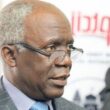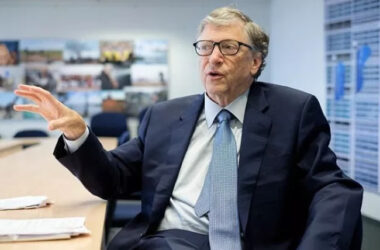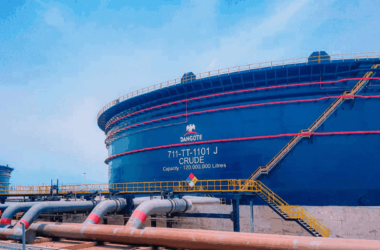The National Institute for Policy and Strategic Studies (NIPSS) has assured Nigerians that the price of petrol is expected to decrease before the end of the year. The drop is linked to the commencement of operations at the Dangote Refinery and other local refineries across the country.
Before the removal of the fuel subsidy, petrol was sold for less than ₦200 per litre. However, prices have surged to approximately ₦930 per litre, depending on the location. This increase has placed a significant financial burden on citizens, but there is hope that relief is on the way.
Speaking on Channels Television’s The Morning Brief on Tuesday, NIPSS Director-General Ayo Omotayo stated that as more refineries begin full operations, fuel prices will gradually decline.
“With the removal of the first subsidy, we have Dangote Refinery coming on. We have the other refineries. The refinery in Port Harcourt has worked continuously for 110 days if I’ve counted right! These are the short-term gains,” he said.
Omotayo predicted that petrol prices could fall to around ₦750 per litre before the year ends, adding that the foreign exchange rate is also expected to improve.
“We’re looking at it coming down as low as ₦750 before the end of the year. And of course, foreign exchange, we believe, will still drop to about 1.3 before the end of the year and it is going to continue like that as more of our refineries come into place.
“We will become a net exporter in the long run,” he added.
He acknowledged the financial struggles Nigerians are facing due to the price hike but assured that the situation would improve over time. According to him, while the benefits of these policies may not be immediate, the country will eventually reap the rewards.
“The gains at this time are very little, but then in the long run, we will make up for whatever sacrifices we have made today as Nigerians,” he stated.
Defending the decision to remove the fuel subsidy, Omotayo noted that although the short-term effects are challenging, the long-term benefits will outweigh the current difficulties. He explained that the government has introduced measures to cushion the impact on low-income earners and urged Nigerians to adjust their spending habits in the meantime.
He added, “Most of the benefits will come in the medium and long term. For now, the government has introduced palliatives to help ease the burden on the poor. We all need to adjust our spending.”









